Table of contents
- Letter from the Board
- Modelica Association
- Conferences and user meetings
- Vendor news
- Modiator - Modelica in the Browser
- orchideo | easySSP v1.4.2 now available
- XRG Simulation - Modelica & FMI conference news
- Wolfram Virtual Technology Conference 2025
- Upcoming: System Modeler 14.3
- Siemens Digital Industries Software
- OpenModelica 1.25.1
- Modelon News
- Model Based Innovation (MBI) Updates
- News from libraries
- Education news
Letter from the Board
Dear Modelica, FMI, SSP, DCP, eFMI interested,
This newsletter is full of anticipation for our upcoming main event: the 16th international Modelica & FMI conference! Our standards progress and so does the format of our conference. We decided very early on to make it a Modelica & FMI conference so that even people only interested in one of our standards can enjoy a full program. We have further strengthened this by elevating the Industrial User presentation to have their own track enabling a better exchange within industry experts but also between industry and academia. You can plan your visit with the preliminary program.
The different scientific tracks nicely represent the multi-faceted aspects of our standards:
- The use of models in AI and the use of AI in models have revitalized classic control applications. Hence the topic “Control and AI” forms its own track. The first keynote of Mishra Siddhartha will enhance this topic.
- Energy systems have always played a dominant part in the Modelica ecosystem and enjoy their track. The second keynote by Johan Åkesson further stresses this point.
- The track on FMI and related (layered) standards goes just beyond the usage of our standards. Advanced handling of meta-information and the integration into MBSE workflows are major topics.
- and last but not least: where else shall you discuss the development of equation-based modeling and their tooling than in a track for “General Modelica” at our conference?
I want to thank all the reviewers and my fellows from the conference board on the tremendous effort they have put into their reviewing effort. Most importantly, I want to express my highest gratitude towards all our authors and contributors. This exciting program would not have been possible without all your work that went into creating these submissions.
The eagerness of our community to contribute to the greater good and to educate is best displayed by the tutorials. We can offer 15 tutorials in parallel. This is fantastic to see and fortunately we have with the HSLU also a wonderful venue that is able to stage all these sessions. Do not forget to fill out the tutorial questionnaire once you have registered for the conference!
Being part of the conference board, I also appreciate the strong commitment of our sponsors. I want to thank our Platinum sponsor LTX, our gold sponsors Dassault Systèmes, Modelon, Tongyuan and our silver sponsors JuliaHub, Wolfram, xRG, Orthogonal, OpenModelica, ASAM, exxcellent, ClayTex. If you want to learn more about them, visit the vendor session at the evening of day 1. Most of them will be also present by a booth for the full duration of the conference. Also more sponsors may still be joining the conference.
I hope that you will enjoy the refreshed format and the packed program and that I will see many of you at the conference.
Panel Discussion
For the first time at the International Modelica Conference, we will have a Penel discussion. The topic is: Open Standards vs. Open source, Collaboration or Conflict?.
We choose panelist from a braod range of companies and organizations using Modelica for their product design and research. Our distinguished Panelists are:
- Adam Moravanszky, Senior Director Simulation Technology, NVIDIA
- Clément Coïc, Technology Cluster Lead - Digital Mechatronics, Siemens Healthineers
- Dirk Zimmer (Chairman Modelica Association), Coordinator for M&S Methods and Tools, DLR
- Marius Dupuis, CEO, ASAM e.V.
- Michael Wetter, Computational Senior Scientist, Lawrence Berkeley National Laboratory (LBNL)
- Ulrich Schulmeister, VP Technology and Engineering, Robert Bosch GmbH
The panel discussion will evolve around a few prepared questions, and questions from the audience. It will be moderated by our board member Hubertus Tummescheit, (Board member Modelica Association), President Model Based Innovation LLC.
Post Conference Activity
For many of us, the conference is also an ideal opportunity to meet in person. This shall be exploited beyond the main event.
To get important feedback from our user-base, we stage an FMI Advisory Meeting (register via email) and also a Modelica Advisory Meeting (register here) on Thursday morning right after the conference. These events are open for everyone who wants to give use feedback, present challenges or propose improvements.
From Thursday afternoon to Friday afternoon, we have hold meetings for the individual working groups and for the overall coordination and strategy of our association.
These meetings are for Modelica Association members only. Registration info has been communicated by email.
Modelica in China
I have decided to visit our Modelica user base in China and hence have undertaken a journey through 6 cities in mainland China this May. This journey let me exchange with Modelica and FMI users, with academia, with industry and with main tool developers and consultants in systems engineering from various technical fields.
I think it is nearly impossible to return as a European from China and not being impressed. Its industry is firing on all cylinders but even more so, the spirit of growth and relentless progress is permeating through its society as a whole. It is a tangible and useful form of progress benefitting wealth, technology, environmental protection and health.
Yet, I was still surprised to see how many fellow Modelicans there are in this country. Indeed, there might be more users of Modelica in China than in the rest of the world combined! For this fortunate situation, we have to thank the initiatives and hard work of many individuals and organizations, both local companies with their own independent tooling and international companies importing software. Chinese teaching material is being created, a Chinese version of the MSL 4.0 exists and demand comes from all industry sectors (and all means all in China).
Despite this fortunate situation, we shall not overlook that the Modelica Association is lacking awareness in China and that some efforts are fragmented. As an international association we have to strengthen Modelica as a community where people help and educate each other. This effort shall also focus on China but not being limited to it and apply for Asia as a whole.
I will come back to this topic in future newsletters and report on very concrete actions that are undertaken in this direction. For now, I want to express my gratitude for all the hospitality I did receive from university professors and their students, from industrial groups, companies and vendors. There are simply too many people to mention here but I was feeling truly honored to have the opportunity to hold lectures and fully enjoyed the technical discussions.
A special thank you goes to Dr. Rui Gao. Without his planning and coordination, the trip would have simply been impossible. I am also extremely grateful to Dr. Aiguo Xu and Ms. Jiayan Zhou from SimTek who have greatly supported this trip all the way (so many organizational things and so many miles travelled) and to Dr. Fanli Zhou from Tongyuan for hosting me in my final destination in Suzhou.
As it turns out, this introduction to the newsletter got quite lengthy. I promise to be more concise in the future but it might be also a good sign that there are so many important developments to report on.
Have fun with the newsletter and see you at the conference!
Dirk Zimmer on July 18, 2025
Chair of the Modelica Association
This article is provided by Dirk Zimmer (Modelica Association)
Modelica Association
FMI news
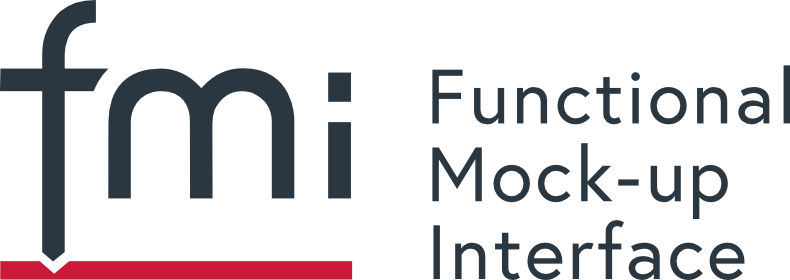
News from the FMI Project
The FMI Project actively maintains the FMI 2.0.x and 3.0.x standards, and currently focusses on the development of Layered Standards to extend FMI for new application domains:
- FMI-LS-XCP v1.0.0 released in Dec 2024: This layered standard defines support for XCP or “Universal Measurement and Calibration Protocol”, a network protocol defined by ASAM.
- FMI-LS-BUS v1.0.0 just released, see below. This layered standard defines how to realize the simulation of network communication with FMI 3.0 means.
- FMI-LS-STRUCT v1.0.0-alpha.1 prerelease: Based on FMI 3.0, this layered standard defines how variables (especially parameters) of an FMU can be structured and grouped in a more flexible way than with the “structured naming convention” of the FMI Standard. The first version of this layered standard is focused on the definition of sampled maps.
- FMI-LS-REF (in development). It will allow for the inclusion of related files into an FMU. This includes parameter sets, reference stimuli and results, which can be used in additional experiments, as well as other relevant files to the FMU, like the model sources, requirements, or specifications.
Additionally two new working groups for the improvement of efficiency of data communication between FMUs and for DAE support have been formed.
250 Tools supporting the FMI Standard
The FMI project is proud to celebrate the milestone of 250 tools supporting the Functional Mock-up Interface (FMI) standard to be listed on the FMI tools page! We want to provide some statistics:
Supported FMI versions:
- 120 tools supporting FMI1.0 - legacy
- 226 tools supporting FMI2.0 - today still the working horse!
- 83 tools supporting FMI3.0 - becoming the “new normal”
Supported FMI kind:
- 178 tools supporting Co-Simulation (CS) import, 133 CS export
- 83 tools supporting Model-Exchange (ME) import, 49 ME export
- 5 tools supporting Scheduled Execution (SE) import, 2 SE export
Supported Platforms:
- 235 tools supporting the Windows platform
- 158 tools supporting the Linux platform
- 43 tools supporting MacOS
- 28 tools supporting SourceCode FMUs (that can be re-compiled to other platforms)
Commercial vs. OpenSource tools
- 197 Commercial tools
- 49 OpenSource tools
User Interface
- 84 tools with graphical user interface (GUI)
- 66 tools with command line interface (CLI)
- 66 libraries/plug-in
The FMI Layered Standard for Network Communication v1.0 has been released - enabling the simulation of virtual ECUs with FMI 3.0!
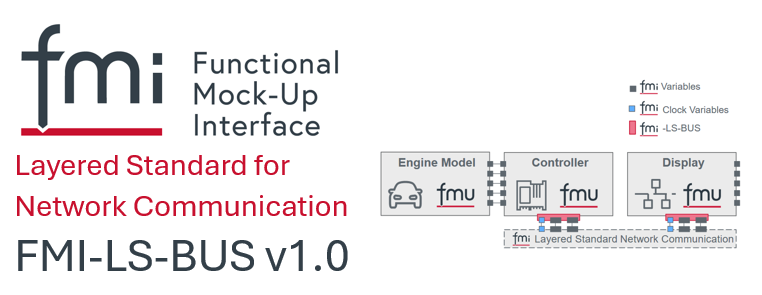
Increasingly complex supply chains and functional diversity in the creation of virtual ECUs (vECUs) require standardization to ensure the simple and cost-efficient exchange of vECUs for users of Software-in-the-Loop (SiL) testing solutions. FMI is an established standard for creating vECUs already using the FMI versions 1.0 and 2.0, but the capabilities for these applications has been improved significantly with the release of FMI 3.0 in 2022. Additionally FMI 3.0 allows for the specification of layered standards. These are defined based on the FMI 3.0 core standard and extend its capability for specific usage domains, in the case of the new Layered Standard the network Communication of vECUs:
CAN, CAN FD, CAN XL, LIN, FlexRay and Ethernet are network technologies that have been applied successfully over many years by all automotive OEMs worldwide. Virtualizing ECUs and then simulating such vECUs requires connecting them using a virtual version of these network technologies.
The layered standard defines what input and output variables and which FMI 3.0 features are used and how to emulate a transport layer for such network traffic. At this point it should be explicitly mentioned that this layered standard not only relates to automotive buses, but can also be extended to buses from other domains in the future.
There are two base use cases enabled:
- Physical Signal Abstraction (or High-Cut) to simply transport physical signal values between virtual ECUs: The network properties are largely idealized: Infinite bandwidth, zero-delay etc. Signals, groups of signals and their properties (e.g., units) are usually derived from existing and validated standard network topology description formats, such as DBC, LDF, Fibex and ARXML.
- Network Abstraction (or Low-Cut) to realize virtualized bus driver implementations: This transport layer emulation allows anything from idealized to more detailed network simulations, including bandwidth restrictions, message arbitration and delays. It forwards the network payloads using binary variables. The Low-Cut abstraction layer is meant to allow virtualized bus driver implementations, including feedback from the physical drivers about transmission status or network node states. Since the Network Abstraction layer is protocol-independent, it can also be used for the simulation of non-automotive control units, e.g., from the field of industrial automation.
The FMI Layered Standard for Network Communication (FMI-LS-BUS) has been created in a collaborative effort by a working group within the FMI Project with contributions from Akkodis, AVL, Beckhoff, Bosch, dSPACE, PMSF and Synopsys (in alphabetical order).
The FMI Steering Committee has now released the version v1.0 of the FMI 3.0 Layered Standard for Network Communication (FMI-LS-BUS). This version includes the common Physical Signal Abstraction, that fits for all bus types, and the Network Abstraction that supports CAN, CAN FD, CAN XL. Additionally a pre-release of FMI-LS-BS v1.1.0-beta was published supporting the next planned bus types FlexRay and Ethernet. A chronological overview of the supported and planned bus types can be found in the FMI-LS-BUS Roadmap.
The new Layered Standard has been heavily tested during the development, and already is supported by the following tools: Altair Twin Activate, AVL Model.CONNECT, dSPACE SystemDesk, dSPACE VEOS, Synopsys Silver, Vector SIL Kit, Vector vVIRTUALtarget (for more information see https://github.com/modelica/fmi-ls-bus)
The FMI Layered Standard for Network Communication is accompanied by other layered standards to improve the simulation of vECUs:
- The FMI-LS-XCP (v1.0 released, see https://github.com/modelica/fmi-ls-xcp) which enables the measurements via the ASAM XCP standard
- The FMI Layered Standard for the Structuring of data (FMI-LS-STRUCT, v1.0-alpha available, see https://github.com/modelica/fmi-ls-struct) which defines support for maps.
Together they represent a significant part of the functionality required for carrying out SiL tests in vECUs by using the popular FMI 3.0 standard. They enable the faster exchange of vECUs and give users the option of tool freedom when creating and simulating vECUs. Ultimately, this reduces the process complexity for exchanging and makes it significantly more cost-efficient to create and simulate vECUs.
We will present the new Layered Standard for Network communication also at the coming “16th International Modelica and FMI Conference” in Lucerne, Sept 8-10 2025, in our talk “FMI Layered Standard for Network Communication: Applications in Networked ECU Development”. Come and meet us there!
16th International Modelica and FMI Conference Sept 8-10 2025 in Lucerne, Switzerland
We are happy to invite you to the coming 16th International Modelica & FMI Conference in Lucerne, where the importance of FMI is now also reflected in the conference title!
This is the most attractive conference also for participants mainly interested in FMI as participants can select sessions focused on FMI from the beginning to the end of the conference. Check out the (preliminary) conference program
- tutorials on FMI
- FMI Beginners’ Tutorial (see below)
- CasADi tutorial on dynamic optimization with FMI 3.0 Model Exchange
- Exporting and importing an FMU using C code
- FMUGym: From Uncertainty-Aware Simulation to Learning-Based Control with FMI and Python
- Tutorial on FMI3 co-simulation with UniFMU
- scientific sessions on FMI
- industrial user sessions on FMI
- Modelica-related sessions that also involve the usage of FMI
- sessions on FMI’s “sibling” standards SSP, eFMI, DCP
Looking forward to meet you in Lucerne!
FMI Beginners’ Tutorial offered at the 16th International Modelica and FMI Conference
The FMI project is happy to announce the FMI Beginners Tutorial on September 8, 2025, in Lucerne, Switzerland. This tutorial is ideal for newcomers to the FMI standard and co-simulation. You’ll gain practical insights, explore practical examples, and connect with experts in the field:
- Christian Bertsch, Robert Bosch GmbH, Project Leader Modelica Association Project FMI
- Claudio Gomes, Aarhus University
- Maurizio Palmieri, Pisa University
Don’t miss this opportunity to strengthen your simulation skills and become part of the Modelica & FMI community!
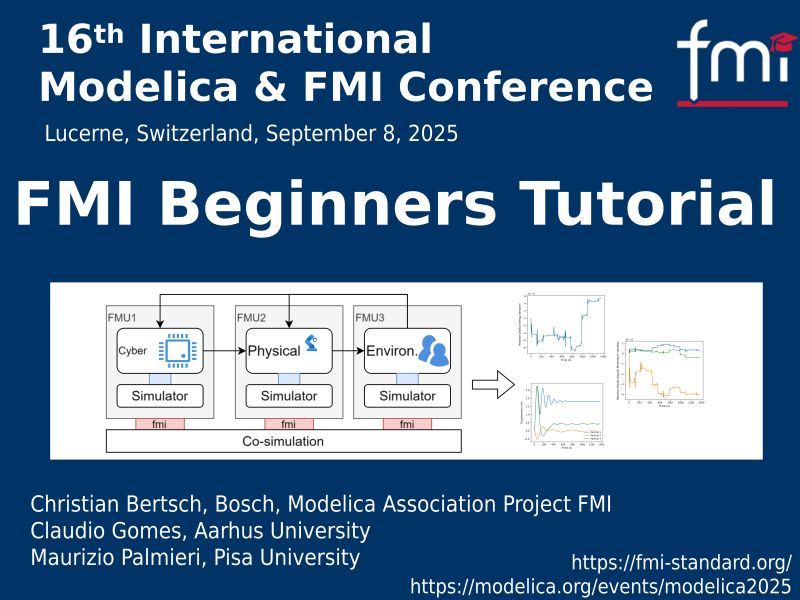
FMI Advisory Committee meeting after the 16th International Modelica and FMI Conference, Sept 11 2025 in Lucerne
Besides the FMI Steering Committee members and Contributing members (see here), the FMI Advisory committee consist of the following companies: AIRBUS, blue automation, Claytex, COMSOL, DNV, Fraunhofer (IIS/EAS First, SCAI), GM Motorsports, KEB Automation, LBL, NVIDIA, Knorr-Bremse Rail Vehicle Systems, MathWorks, Open Modelica Consortium, Samares Engineering, SINTEF Nordvest, University of Halle, Volkswagen, Volvo Autonomous Solutions, VTI.
There will be a face-2-face FMI Advisory Committee meeting the day after the Modelcia and FMI Conference, Sept 11 2025 in Lucerne!
If you have a topic suggestion, or want to join as a guest, please contact contact@fmi-standard.org.
Other Resources and Discussion Forums for FMI-related Questions
- Visit the FMI tools page listing 250 tools supporting FMI!
- Join the LinkedIn FMI community to get the latest news on FMI, FMI supporting tools and discussions within the user community.
- Ask technical questions and discuss topics on the usage of FMI on StackOverflow tagged “FMI”.
- Report problems of the standard itself or suggestions for new features in form of issues or discussions on fmi-standard.org
This article is provided by Christian Berstch, MAP FMI
Conferences and user meetings
eFMI® Tutorial at the 16th International Modelica & FMI Conference
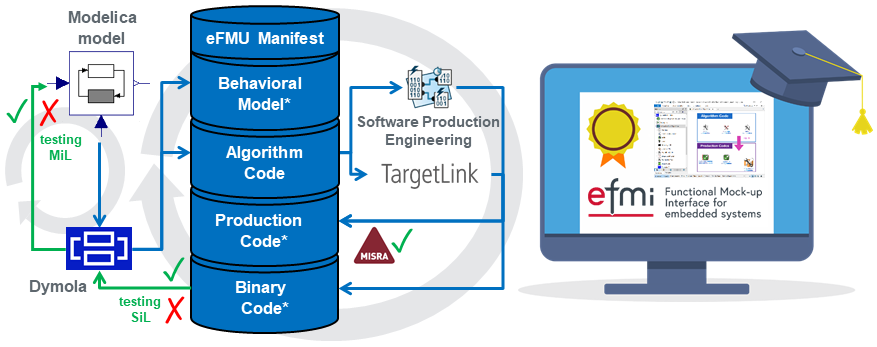
Time: Monday, 08/Sep/2025, 1:30pm–4:45pm (including 30min coffee break)
We are happy to announce that there will be an extensive eFMI® tutorial at the upcoming 16th International Modelica & FMI Conference.
The tutorial will demonstrate the current state-of-the-art of available eFMI® tooling. Participants will get a very high-level overview of the eFMI® workflow from acausal physics models in Modelica® down to embedded target code and a hands-on experience of it for selected Modelica® examples. The generated eFMUs and their various intermediate model representations are investigated, focusing on the non-functional quality criteria satisfied by the generated solutions, like traceability within eFMUs, MISRA C:2023 compliance of generated production code and other code quality criteria like static memory allocation and error handling.
Compared to the tutorial at the last International Modelica Conference in 2023, we will investigate more advanced examples like hybrid physics and neural network (NN) models where unknown non-linear physics are modeled using NN surrogate models well integrated with known physics (so called physics-enhanced neural ordinary differential equations, PeN-ODEs). Also the latest eFMI® improvements will be presented, like tooling to import eFMI® Production Code in MATLAB®/Simulink®, the new standard library of GALEC built-in functions and others.
Expected experience of participants:
- No previous experience with eFMI®.
- Moderate knowledge of Modelica®.
- Good understanding of physics/equation-based modeling.
- Little/moderate knowledge of the embedded domain and its challenges.
Software requirements:
- Participants have to bring their own computer with Windows 10 or 11, 64-Bit, x86.
- Required software will be provided few days before via download and at the tutorial via USB stick.
- Time limited licenses (Dymola®, Software Production Engineering) valid throughout the conference week are provided.
- To provide the download links, participants have to register for the tutorial. Please write an e-mail to Christoff.Buerger@3ds.com (Modelica Association Project eFMI® project leader) that you like to participate.
If you have any general questions regarding the eFMI® tutorial, you can contact our public mailing list, efmi-info@googlegroups.com (no Google account required).
This article is provided by Christoff Bürger (Dassault Systèmes)
FMI Import & Export using C Code Tutorial at the 16th International Modelica & FMI Conference

Time: Monday, 08/Sep/2025, 1:30pm–4:45pm (including 30min coffee break)
We are happy to announce that there will be an extensive FMI tutorial at the upcoming 16th International Modelica & FMI Conference.
In this tutorial we show how to write a simple FMI 3.0 implementation for a Co-Simulation FMU in C code. Starting with a minimalistic code framework we explain the implementation of all required functions and give best-practice recommendations on implementing error handling. The first part of the tutorial session is completed by building the FMU and simulating it in an FMI master program.
Next we present the steps on how to import an FMU into a software. Again, focus lies on implementation of the necessary functions and implementation of robust error handling. The FMU created in the first part is imported and run through a prepared simulation loop. Using the debugger we follow the function calls and develop an understanding of how the FMI master interacts with the FMU and how data is being exchanged.
We show how to build the FMU and the master program using platform-specific compiler tool chains. Participants can use their own development environment or use a prepared online compiler and development environment.
This article is provided by Torsten Sommer (Dassault Systèmes)
Vendor news
Modiator - Modelica in the Browser
Modiator
Modiator (Modelica Instant Simulator) is a simulator for a subset of Modelica with some extensions. The compilations and simulations can run in the browser on desktops, laptops, tablets, mobiles, or using node.js to run on IoT devices or on the cloud. Modiator is based on pure JavaScript modules with the simulator based on Sundials compiled into WebAssembly. Modiator UI has a library browser, drag&drop Modelica diagram editing, Modelica text editor, plotting, Monte Carlo simulator and analyzer, 3D animation, etc.
Modiator 0.1.0 will be released on September 8 at the Modelica and FMI Conference, Luzern.
Tutorial at the Conference
Modiator will be used during a tutorial at the conference. The participants will start to develop a Modelica web app simulator with a specialized user interface for a certain model/domain. The specific user Modelica model can be developed using the Modiator UI. A web app template will be provided which calls the Modiator API to compile and simulate Modelica models. The participants will adapt this template to get a desired user interface for experimenting with their specific model. Alternatively, AI tools can be used to produce a first Modelica model of the application and a first version of the HTML and JavaScript code of the web app.
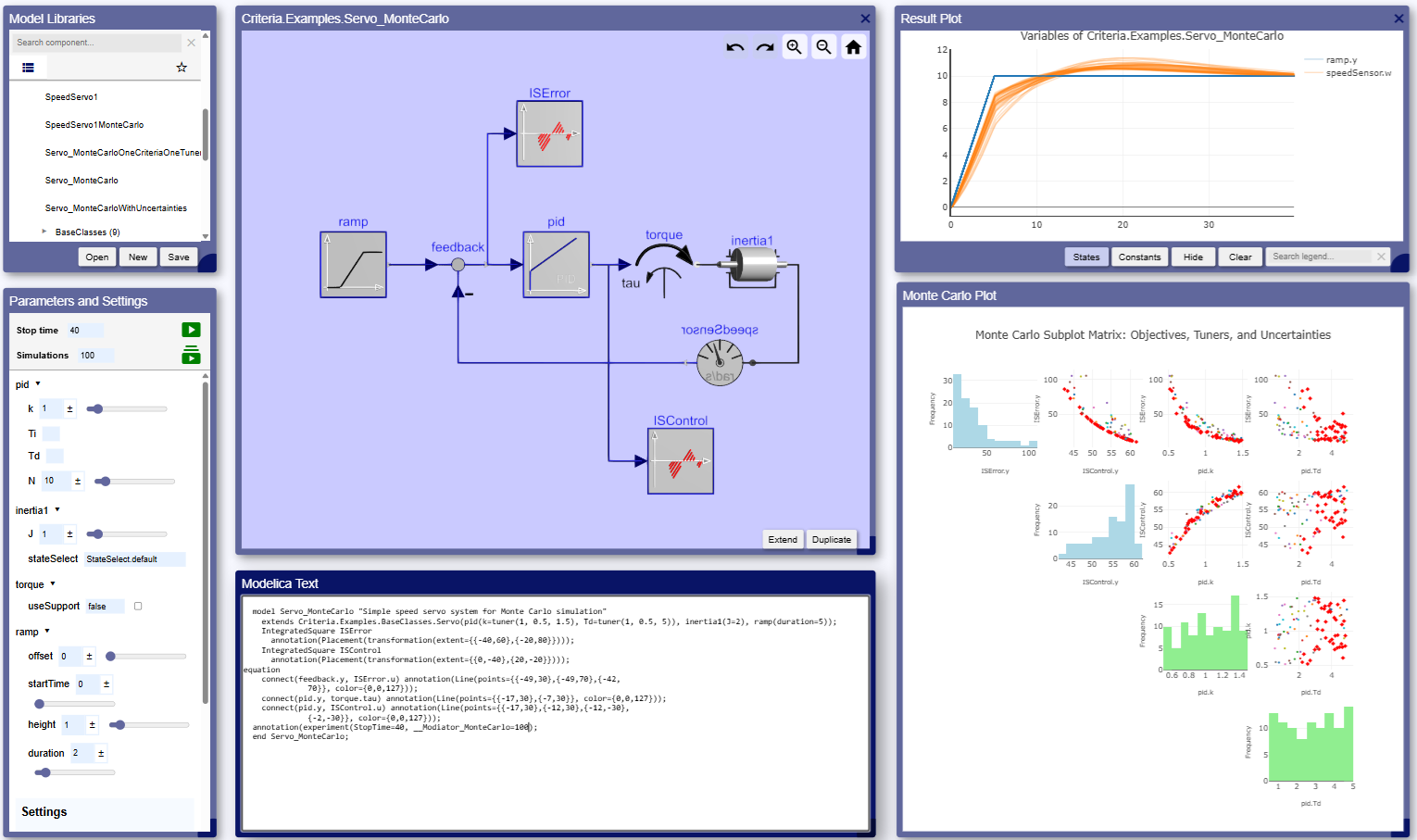
This article is provided by Hilding Elmqvist and Martin Otter
orchideo | easySSP v1.4.2 now available

orchideo | easySSP v1.4.2 released
The new easySSP version 1.4.2 introduces hierarchical parameter handling for component synchronization, making it easier to display and override parameters defined at higher system levels. Additionally, a new merge function for parameter bindings allows for more efficient consolidation of parameter configurations.
Building on existing functionality, subsystems and components can now be exported and imported as System Structure Description (SSD) files. Components can reference SSDs for improved reuse, and a new convert feature enables seamless switching between systems and components — while preserving connectors, parameters, and metadata.
Workflow capabilities have also been extended: dynamic workflow parts and workflow variables now enable a more flexible, user-specific process guidance and documentation. Moreover, multiple workflows can be bundled within a single SSP container and selected via the navigation bar.
To further support metadata exchange and model reuse, easySSP now offers flexible import and export of classifications in the Simulation Resource Metadata (SRMD) format, covering all metadata scopes within the app.
easySSP is based entirely on open standards like SSP, FMI, and SSP Traceability. Learn more at easy-ssp.com.

Meet us at the 16th International Modelica & FMI Conference
We’re excited to participate in the 16th International Modelica and FMI Conference as a Silver Sponsor — and to showcase easySSP in action!
Join us for the tutorial “Introduction to the System Structure and Parameterization (SSP) Standard”, presented together with Dag Bruck (Dassault Systèmes) and Antoine Vandamme (Robert Bosch GmbH).
Don’t miss our vendor presentation “Building Trust in Simulation-Based Engineering: Credible Simulations with easySSP and the SSP Standard”, where we’ll explore how easySSP supports traceable and trustworthy system simulation.
Stop by our booth to experience easySSP live and connect with our team — we look forward to seeing you in Lucerne!
This article is provided by Gregor Hermann, Peter Lobner eXXcellent solutions
XRG Simulation - Modelica & FMI conference news
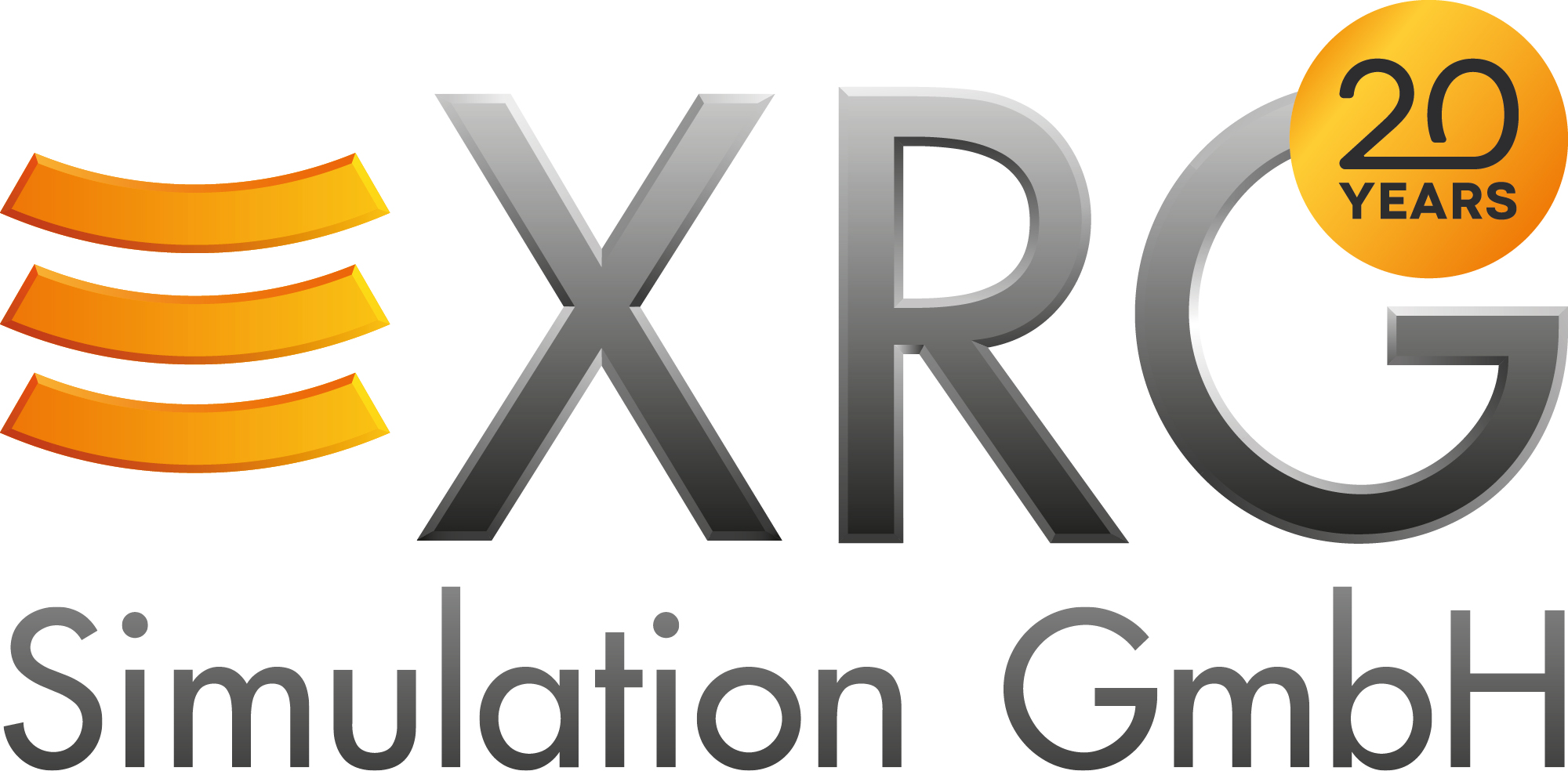
On the Modelica Conference 2025 in Lucerne XRG will be present with a booth, informative vendor session, an extensive tutorial on AI integration into Modelica and two scientific talks (see below). We will be happy to meet you in Lucerne!
Our Booth
Stefan Wischhusen (book a meeting by e-mail) and his team are looking forward to meeting you at our booth in the exhibition area. You are welcome to visit us for an eye-to-eye conversation at any time.
Our Vendor Presentation: Closing the gap between Modelica and the rest of the world – XRG’s portfolio goes AI!
Mon., 8th 16:45-18:45
In this presentation, we will begin by showcasing the significant enhancements in the classic XRG Modelica Libraries for thermal energy system simulation, relevant use cases and how to deploy results to industrial product development. These libraries are a foundation to next-level surrogate and machine-learning modelling which is enabled by XRG’s newest Modelica library SMArtInt+. The multi-tool library closes the gap between data-driven and physical Modelica modelling through its powerful tool-chain and user assistance which are crucial for real-life product integration.
And not to forget: XRG is celebrates its 20th anniversary with a special offer … the new XRG Suite!
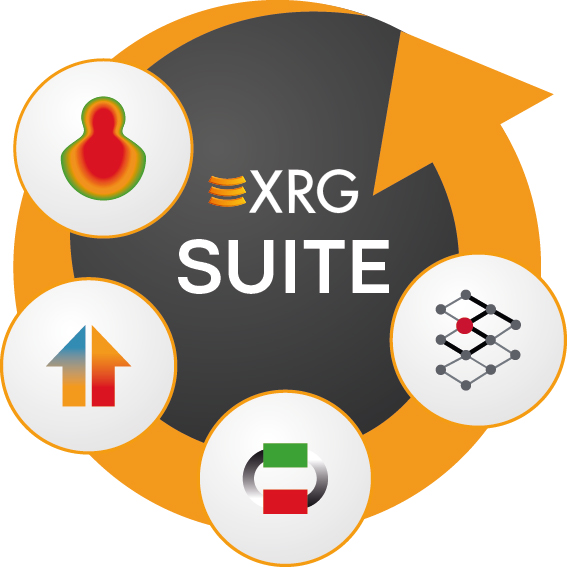
Our tutorial: Using SMArtInt+ - Machine-learning and easy integration of artificial intelligence in Modelica
Mon., 8th 13:30-16:45
There is an increasing need for hybrid models consisting of physical and machine-learning model parts. XRG has developed the SMArtInt+ Library, that enables the easy generation and integration of neural networks from different sources and types (e.g., TensorFlow, ONNX, Julia, etc.). This tutorial provides a hands-on introduction to the use of this library. The main use case is the creation of a hybrid model for a thermodynamic application.

Our Talks
Two interesting XRG talks about AI integration and HVAC modelling have made it to the program:
- Tim Jonas Hanke et al.:“Status of the SMArtInt Library - Simple Modelica Artificial Intelligence Interface”, Tue., 8th 11:10
- Boudewijn von Groos, Alje van Dam, Carsten von Ohlen et al.:“Modelica driven development of the thermal management control system for a zero emission yacht”, Wed., 9th 12:15
Our colleagues will be happy to answer your questions during the discussion.
References
- Open source SMArtInt version on Github
This article is provided by Stefan Wischhusen XRG Simulation GmbH
Wolfram Virtual Technology Conference 2025
Join us virtually for the Wolfram Technology Conference 2025.
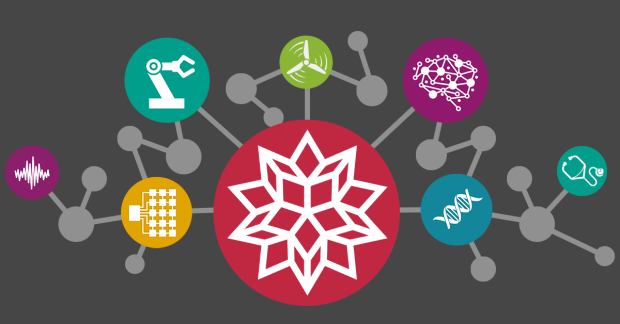
Discover how System Modeler and the broader Wolfram technology stack can power your organization’s research, development, and deployment workflows.
At this year’s conference, you’ll explore how to:
- Automatically validate performance and safety requirements in your Modelica models
- Build connected, scalable solutions—from LLM plugins and apps to packages and full production systems
- Implement innovative online learning, apply computational thinking across curricula, and harness the full power of computation
Engage with Wolfram developers and industry experts as they share how real-world products are designed, simulated, and deployed using the Wolfram ecosystem.
- Dates: November 5–7
Learn more about the conference.
This article is provided by Ankit Naik Wolfram
Upcoming: System Modeler 14.3
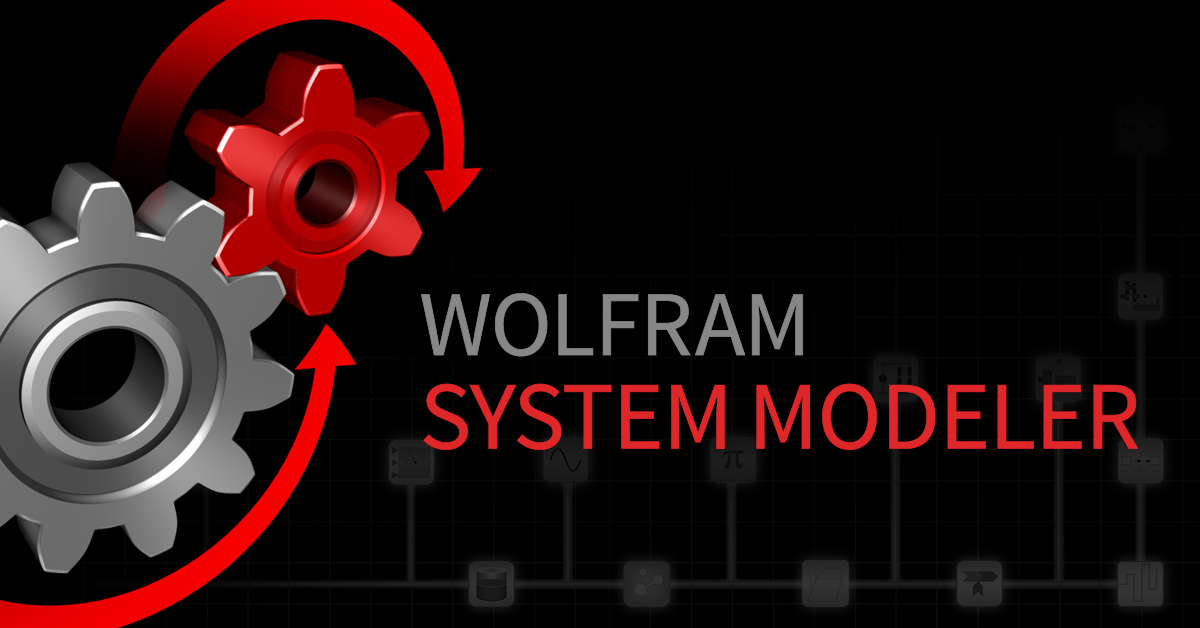
The upcoming release of System Modeler 14.3 introduces powerful new features for users who want more than just drag-and-drop modeling. Whether you’re working within the System Modeler interface or harnessing the full capabilities of the Wolfram Language, you gain flexible tools for simulation, analysis, and rich post-processing.
Key highlights:
- Automated Design Validation: Define high-level performance and safety requirements and automatically verify them—powered by Wolfram Language.
- Live Tuning During Simulation: Modify gains, time constants, or other parameters on the fly—without stopping or recompiling your model.
- Simulate Using Calendar Time: Set simulation periods using real-world dates and generate time-aware plots for clearer, more contextual insights.
Stay tuned—System Modeler 14.3 is just around the corner!
The full list of new features will be available at wolfram.com/system-modeler/what-is-new upon release.
This article is provided by Ankit Naik Wolfram
Siemens Digital Industries Software
Simcenter Amesim 2504 released
Siemens Digital Industries Software is pleased to announce the recent release of Simcenter Amesim 2504 as part of its system simulation solutions. This release introduces key updates including further more accelerated simulations and improved model validation tools. Enhancements target electrification with new battery and heat exchanger assistants, electrochemical aging simulations, and hydrogen applications with components for electrolyzer and cryogenic storage modeling. It also supports the import of 3.0 Functional Mockup Units (FMUs) for co-simulation, as described hereafter.
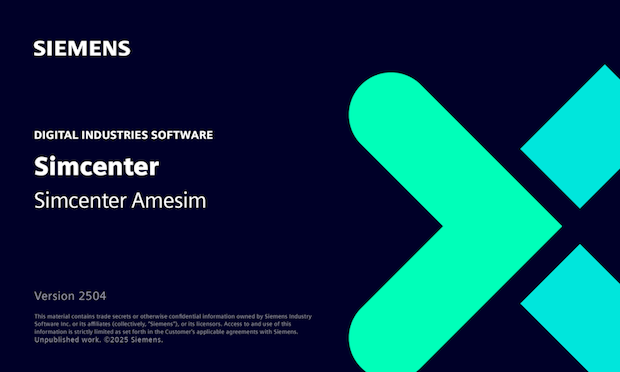
Import of 3.0 FMUs for co-simulation
To further extend the capabilities of Simcenter Amesim as heterogeneous model integration platform, the import of 3.0 FMUs for co-simulation has been implemented. Fixed-size FMI 3.0 arrays are supported as well as tunable elements/parameters. Expected benefits for users are:
- A direct import of virtual ECUs, typically with arrays.
- The capability to orchestrate multiple 3.0 and 2.0 FMUs within the same model, while using distinct run settings for each FMU.
Test FMUs from Simulink, Dymola, Twin Activate, MapleSim and other tools have been successfully imported and simulated during the implementation phase. The below picture shows an example of 3.0 FMU imported to a real-time capable Simcenter Amesim hydraulic excavator model, whose execution is synchronized with the wall clock time. The FMU comes from Simulink R2025a. It features an FMI array output represented by a vector, as well as tunable parameters, allowing to change the value of this vector. These tunable parameters are used to control the excavator.
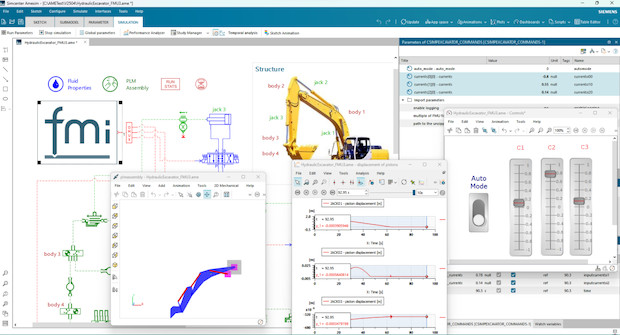
Upcoming event: 16th International Modelica & FMI Conference
Karim Besbes, from Siemens Digital Industries Software, is going to present a paper entitled: “An innovative heterogeneous modeling approach to build a cooling system for battery thermal management with common fluid properties involving FMI terminals”. This work, which proposes a promising technique for sharing media properties between tools, which is still an interoperability challenge at the present time, demonstrates Siemens’ willingness to contribute to both FMI and Modelica to offer the best to its customers. Check out the Tuesday afternoon session on the conference’s preliminary program.
For more information on Simcenter Amesim, please visit our website.
This article is provided by Bruno Loyer (Siemens Digital Industries Software)
OpenModelica 1.25.1
Following the release of 1.25.0, several issues were reported and promptly addressed. Version 1.25.1 is our first maintenance release focused entirely on bug fixes and stability improvements.
Fixes & Improvements
- Resolved OMC and OMEdit crashes and improved stability.
- Improved type checking.
- Enhanced handling of overconstrained connections
- Fixed initialization issues when using external input data.
- Ensured accurate loading of the specified library versions.
- Fixed expression evaluation issues and improved model editing in OMEdit.
For complete list of bug fixes see milestone 1.25.1
This article is provided by Adeel Asghar, Francesco Casella Open Source Modelica Consortium
Modelon News

Modelon Sponsors the International Modelica Conference
We’re happy to announce that Modelon will be a Gold Sponsor at the upcoming International Modelica Conference in Lucerne, Switzerland, September 8-10, 2025. We look forward to meeting a large part of the Modelica community in person. Modelon will present the below sessions:
- Tutorial Session: Beyond Simulation – Building Workflows and Web Applications with Modelica and Python
- In this hands-on session, attendees will learn how to integrate Python with Modelica to automate tasks, visualize results, and build interactive interfaces – all within Modelon Impact.
- Vendor Session: What’s New in Modelon Impact – AI-Powered Modeling, Seamless Collaboration, and Expanded Integration
- Come see the latest and greatest Modelica-powered system simulation technology that Modelon Impact has to offer. Attendees will get an exclusive first look at our AI-powered code editor as well as more game-changing features.
- Technical Paper Session: Frost/Defrost Models for Air-Source Heat Pumps with Retained Water Refreezing Considered presented by Matthis Thorade
Modelon will also have a booth in the exhibition hall. We hope to see you there in just a few months!
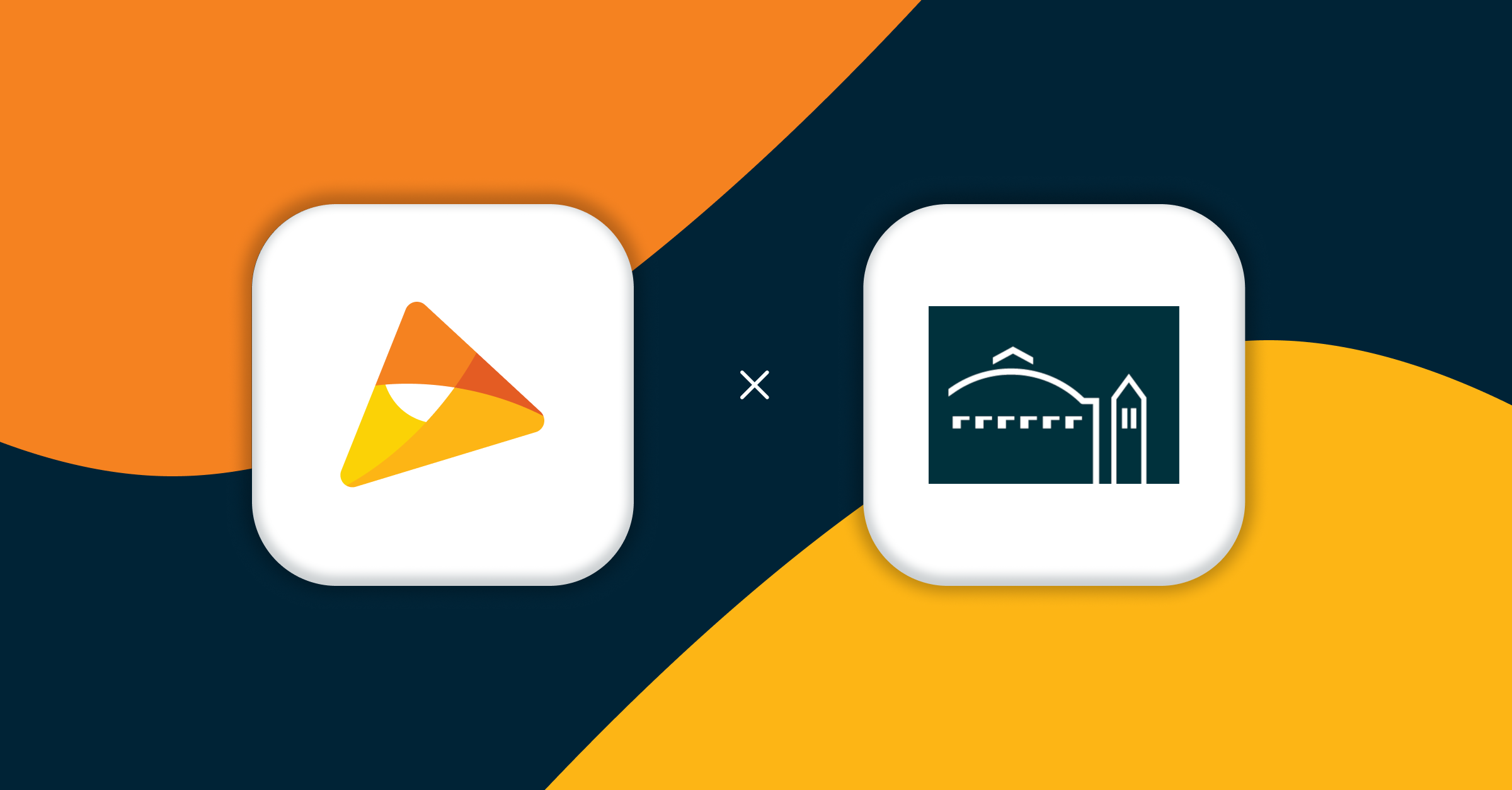
Modelica Buildings Library Now Available in Modelon Impact
Modelon is happy to announce that the Modelica Buildings Library is included and fully supported in Modelon Impact. This integration creates new possibilities for engineers and researchers working to improve building performance, enabling scalable modeling and simulation within a modern, collaborative environment.
Read the full announcement here.
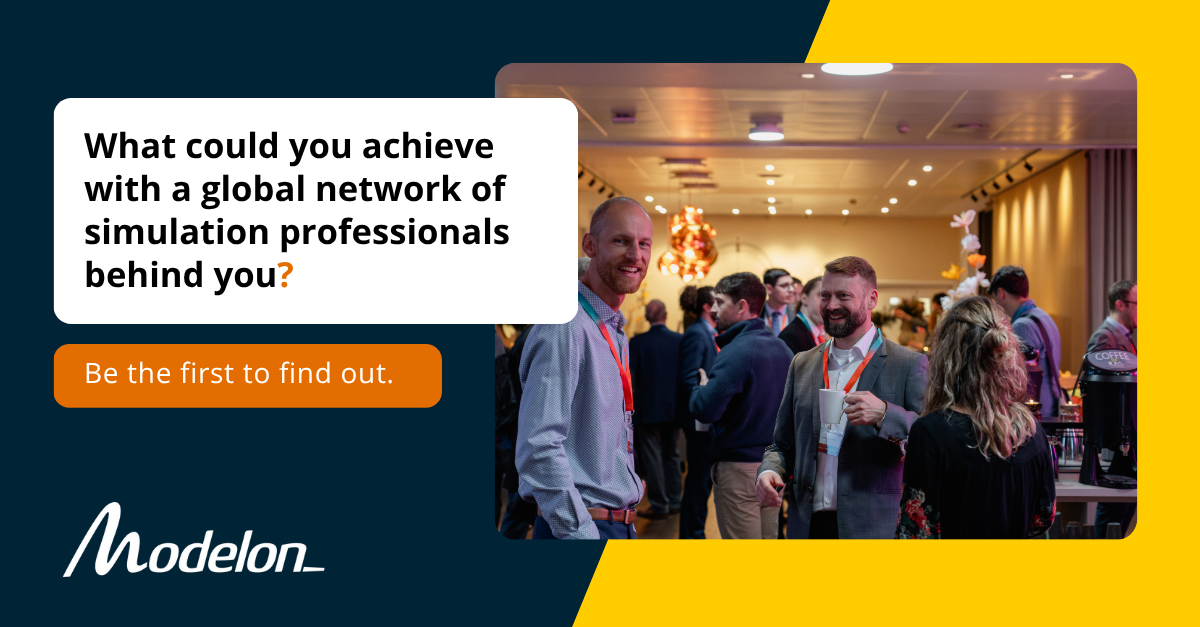
Introducing Modelon Help Center and Community
We’re excited to announce the upcoming launch of the Modelon Help Center and Community — a dedicated space for the global Modelica community to connect, share ideas, and support one another.
Whether you’re a researcher, system simulation expert, or just passionate about Modelica, this is your place to explore best practices, ask questions, and collaborate on both academic and commercial applications.
We’re currently opening access to a small group of early users. Want in? Join the waitlist by adding your email here.
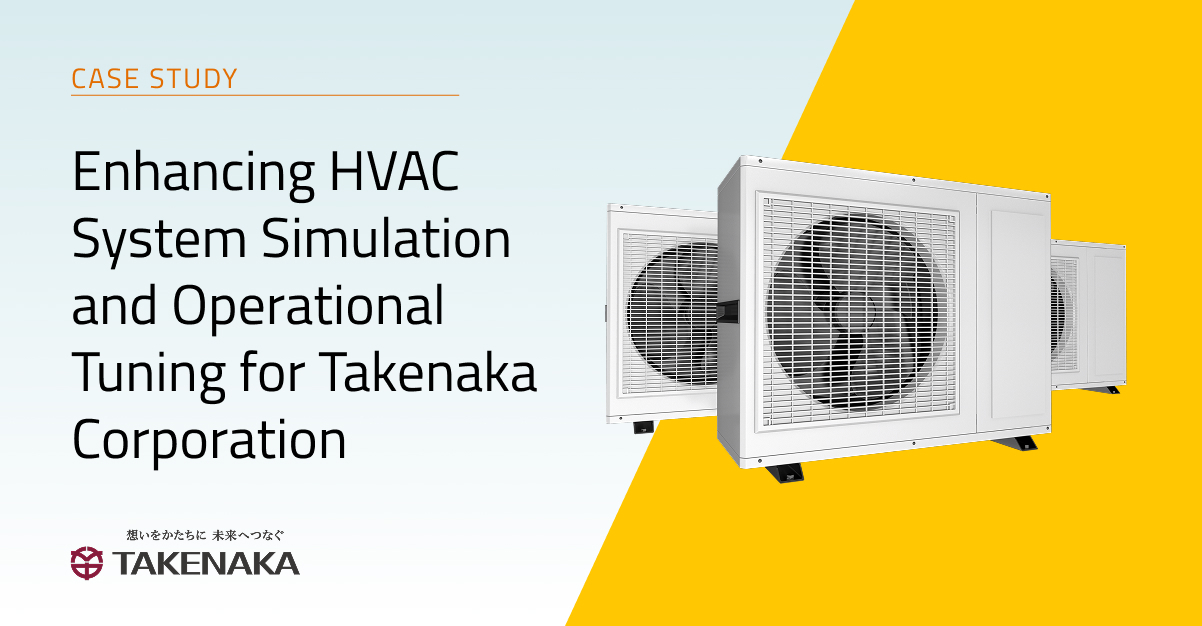
New Case Study: Enhancing HVAC System Simulation and Operational Tuning for Takenaka Corporation
To bridge the gap between HVAC system design and real-world performance, Takenaka Corporation—one of Japan’s leading engineering contractors—partnered with Modelon. Leveraging Modelon Impact’s physics-based modeling and seamless integration with EnergyPlus, Takenaka developed a high-fidelity HVAC system simulation for a standard office floor. This enabled more accurate control logic tuning, operational optimization, and laid the groundwork for future modeling of larger buildings. The collaboration not only improved energy performance but also strengthened Takenaka’s internal simulation capabilities, supporting their long-term vision for energy-efficient, comfortable Net Zero Energy Buildings (ZEBs).
Read the full case study here.
This article is provided by Swati Tyagi (Modelon)
Model Based Innovation (MBI) Updates
MBI is the only one-stop shop for solutions based on the Modelica Association standards based in the United States. In addition to to tool and library sales, we also provide services to help you set up your processes to successfully use model based design for innovative product development.
Tool Updates
Modelon Impact is our tool of choice for Modelica due to its cloud-based nature that makes collaboration and integration so much easier. We offer Modelon Impact with fully supported extensions and add-ons to integrate it with controls design. This includes the FMI-Toolbox for seamless integration into Simulink and PMSFIT FMIBench for FMI integration and co-simulation, supporting both FMI and SSP.
For orchideo | easySSP we now offer extended examples and getting-started training. News about their latest release is in eXXcellent solutions section in this newsletter.
In the combination of these tools, this covers needs for standards-based system simulation for everything from small customers to enterprise needs.
Libraries
For Libraries, our main Modelica platform is Modelon Impact, but we work with other tools as well, especially for open-source libraries, and extending open-source libraries. MBI has adapted some open source libraries to fully work with Modelon Impact. For example, we have adapted the Industrial Control Systems Library for Modelon Impact and provide support for it. Further libraries are in preparation.
Services and Training

- We offer basic and advanced Modelica training for customers that need to get started quickly. Our advanced training is for simulation users that need to go more in depth to achieve their goals. Our Modelica training is done on cloud-based Modelon Impact, which allows to provide training without any installation hassles. We also offer training on integrating Modelon Impact into heterogeneous tool landscapes and existing product design workflows.
- Modelica is very well suited for controls design, analysis and verification. We offer specialized training and support for all topics related to modeling for controls. With the Python integration of Modelon Impact offers integration with excellent Python packages for Control. MBI also provides specialized libraries for Controls development.
The common training courses will be made available as video-on-demand courses.
With the above portfolio, MBI LLC will select the right solution for you, no matter where you are on your journey to standards-based system simulation! We are going to add further partners in the coming months. Please contact us with your requests!
International Modelica Conference 2025
As many of us in this community, MBI is very much looking forward to see you at the Modelica Conference in Lucerne! Our founder Hubertus Tummescheit is most looking forward to the Panel discussion that he will be moderating. The topic is: “Open Standards vs. Open Source: Collaboration or Conflict?” We have an excellent group of panelists from diverse backgrounds in the discussions, and will allow the audience to ask questions as well. To hear more about the panel discussion and the conference, follow Hubertus on LinkedIn.
This article is provided by Hubertus Tummescheit, Model Based Innovation
News from libraries
A generic FMU import for Modelica
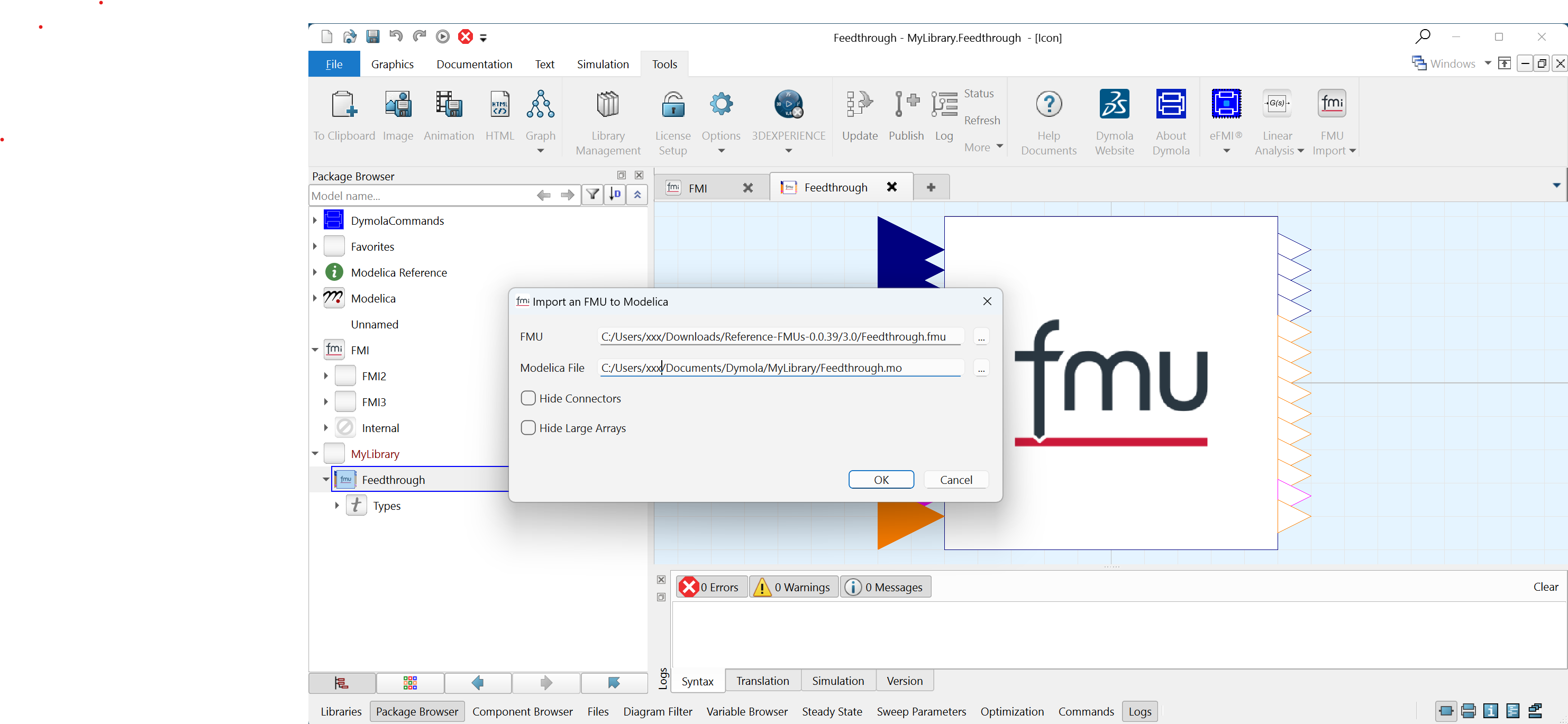
Modelica FMI
We are happy to annouce the release of a generic Modelica library to import Functional Mock-up Units.
Highlights
- supports FMI 2.0 and FMI 3.0 for Co-Simulation
- works with all Modelica tools
- logs FMI calls to the console or to a file
See https://github.com/modelica/Modelica-FMI for more information.
This article is provided by Torsten Sommer (Dassault Systèmes)
Testing Library: New features and upcoming events
The Testing library now includes the PowerShell module PSTesting, which enables easy test execution on Gitlab, Jenkins and in local sessions.
Moreover, the library will be presented at two events in September: In an interactive tutorial at the Modelica Conference and as a live stream in the CATIA Masterclass series.
PowerShell Module: PSTesting
PSTesting is shipped with the Testing library in Dymola 2025x Refresh 1.
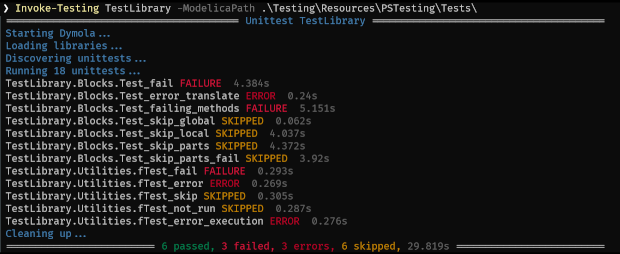
Usage is simple. Install PowerShell 7.5, import the module and run commands like:
Invoke-Testing unittest MyLibrary -JunitXml report/junit.xml
This will start the latest Dymola version in the background, simulate all tests, print the results and create a junit.xml.
We can also check libraries, simulate examples and configure many options. The Testing user’s guide and the PSTesting documentation provide all infos you need.
Upcoming Events
Tutorial: Regression Testing with Dymola and the Testing Library
- Location: At the Modelica Conference in Lucerne
- Time: Monday, 08/Sep/2025, 1:30pm - 4:45pm
- Check the Tutorial Abstract Booklet for details.
CATIA Masterclass: Automated Tests in Modelica with Dymola and the Testing Library
- Location: Live-Stream on LinkedIn and in the CATIA MBSE Cyber Systems community.
- Time: Thursday, 18/Sep/2025, 3:00pm, 45min + questions
- The replay will be available on YouTube.
This article is provided by Marco Keßler (Dassault Systèmes Austria GmbH)
Education news
New: Hands-On Training for the Process Systems Library (PSL)
Want to get practical experience with TLK Energy’s Process Systems Library (PSL)?
PSL is a flexible, Modelica-based library developed for the dynamic simulation and optimization of complex energy and process systems — including Power-to-X (PtX) processes, Carbon Capture technologies, and integrated energy systems. Thanks to its modular structure and open standards, PSL enables engineers to build tailored, scalable models that can be adapted to specific project requirements.
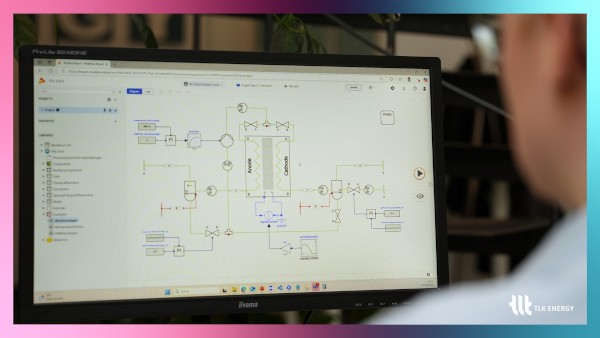
Our next PSL Training takes place soon: 24–25 July 2025, online.
For short-term participants:
There are still spots available — register now and get hands-on with PSL.
Please note that basic Modelica skills are required.
If you can’t make it this time: No worries, we will offer further PSL Training sessions in the future.
What to expect in the PSL Training:
✔️ Interactive online sessions accessible from anywhere
✔️ First-hand insights and guidance from PSL experts
✔️ Practical example: Build your own model of a PEM Electrolyzer
✔️ Access to model and script examples
✔️ Official PSL Certificate upon completion
Interested?
Register by email: training@tlk-energy.de or visit our website.
Any questions? Feel free to contact us — we look forward to seeing you online!
This article is provided by Lina Rosenthal (TLK Energy GmbH)
Replay of June 12 Webinar on Sustainable Energy Systems

Watch the (replay) of Dassault Systemes’ System Simulation Team exploring sustainable energy solutions, from design to integration, and learn how to optimize costs while ensuring compliance with environmental standards.
Agenda
- Introduction
- Use Case 1: Smart Energy Home
- Use Case 2: Rail Freight
- Use Case 3: Mining
- Conclusion
This article is provided by Markus Andres (Dassault Systemes)